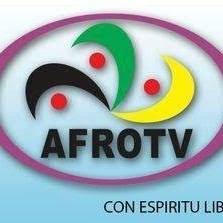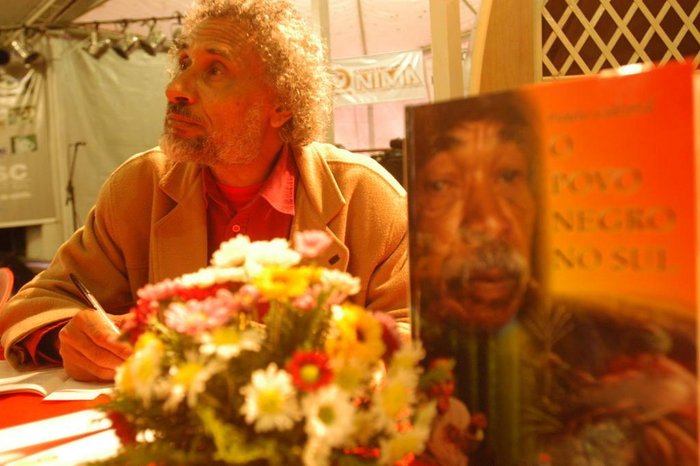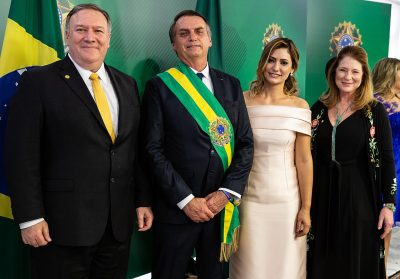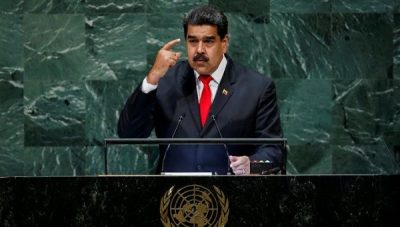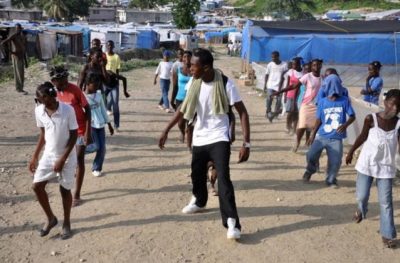These are the Afro-Colombians of the year
National, December 25 2018 — 7:14 PM
World champion athlete Caterine Ibargüen tops the list of Afro-Colombians of the year, which also includes actress Karent Hinestroza, environmentalist Francia Márquez, Tumaca scholar Ricardo Antonio Torres and journalist Eduardo López Hooker, among others. The distinction, which was created nine years ago, is an affirmative action to celebrate the contributions of the black population to the construction of the country.
There were 39 nominess in 13 categories, including Academia, Media and Journalism, Sports, Public Force and Health Sector. / Cristian Garavito — El Espectador
Ricardo Antonio Torres, winner in the Academia category
He is the most cited researcher in Latin America in water treatment with ultrasound, the subject to which he has dedicated his academic life. Born in Tumaco, Nariño, he is a chemist with a Master in chemistry from the University of Valle, a PhD in Chemistry from the University of Savoy in France and a post-doctorate in Chemical Engineering and applied chemistry from the University of Toronto. He spent two and a half years doing research on a scholarship from the Swiss Federal Institute of Technology in Lausanne.
Being away from the country, he was often asked “You came to stay, right?” but he always replied: “No. I want to return to Colombia. There are many opportunities outside but the needs are here, there is much to be done”. It has been seven years since he returned, to the University of Antioquia, where he created the Research Group on Environmental Remediation and Biocatalysis, in which they study water treatment through electrochemical, photochemical and sonochemical methods, among others.
When he was in school, he had a “crazy dream”, he says. “I want to win a Nobel Prize in Chemistry”. Today he is among the 10 most cited people worldwide in his line of research. “This was always the goal: to study at the highest level and then return to Colombia to contribute with my acquired knowledge”.
Eduardo López Hooker, winner in the Media and Journalism category
Hooker is a journalist at Noticias Uno and winner of the Simón Bolívar Journalism Award of 2018, a recognition he had already been given in 2000. A social communicator and journalist from INPAHU, he has worked in cities such as Santa Marta and Marizales and has lived in Bogotá since 1996.
A Raizal and son of a
sanandresana, the concern over the archipelago has always been present. “Unfortunately, what is affecting our people the most is crime; lack of health, education and corruption. You do not want to show what’s bad in your house, but you have to clean it and in order to do it, you have to make visible the dirt in your house. This generates greater impact at the national level”, he says.
Throughout his career he has covered political and public order issues in media outlets such as El Nuevo Siglo, La Patria, Colprensa; Noticiero de las 7, Canal Capital and El Tiempo.
Divania Vanesa Contreras, winner in the Youth category
Born on the island of Tierra Bomba, Cartagena, she is the first naval officer of her community. At the age of 14, she joined the Puerto Bahía Foundation to work on the protection of adolescent rights, particularly by sensitizing young people to the issue of sexually transmitted diseases. She is currently part of the Pacific Naval Force, in the area of strategic communications as she is a social communicator and journalist.
In 2017, the sea was destroying the houses in her community. As a form of protest, they closed the access channel to the bay so that no ships entered. She says that neither the mayor nor the government responded to the claims. The only organization that showed up was the Navy, followed by the Almirante Padilla Naval Academy of Cadets. Now she wants to be a captain and return to her community, Punta Arena, to serve in her role.
Francia Elena Márquez, winner in the Social Sector Category
She won the Goldman Prize in 2018, considered to be the ‘Green Nobel’, which gave her international recognition as an environmental leader. For more than a decade she has been fighting against illegal mining and extractivist projects that have a strong impact on her territory, in Suárez, Cauca.
To denounce the consequences of mining in her community, she organized a mobilization in 2014 together with communities from the northern region of her department in which they marched to Bogotá demanding answers. For Márquez, defending the environment is a duty of all human beings, especially when “the planet is about to collapse”. The mechanism she proposes is mobilization for resistance.
This struggle is a legacy of her elders, in the La Toma Community Council, in Suárez, who instilled in her respect for the harmony of the territory. She also won the National Human Rights Awards in 2015, and was invited to the Government-Farc negotiation table in Cuba, to talk about the impact of the armed conflict on Afro-descendant, indigenous and peasant women and communities.
Javier Ferney Castillo, winner in the Science and Technology category
Castillo is a professor at the University of Santiago de Cali, in charge of the Robotics area of the Electronic Engineering program. In 2018 he linked students and professionals to the field of rehabilitation robotics and assistive technology systems, achieving developments for alternative communication in people with cerebral palsy through low-cost systems.
He has worked on topics associated with the development of Robotics for responsible pet ownership. In conjunction with a Chilean university, he advanced a system for the investigation of learning problems in children, with invisible research techniques, and he leads the development of robotic systems for cognitive and physical rehabilitation of children with disabilities in association with the University of Valle and the Federal University of Espírito Santo in Brazil.
Born in Tumaco, Nariño, he is an electronic engineer with a master’s degree in Automation from the University of Valle, a magister in Electrical Engineering with an emphasis in Rehabilitation Robotics from the Federal University of Espírito Santo in Brazil and a doctorate in Engineering from the University of Valle.
Karent Hinestroza, winner in the Music and Arts category
For the protagonist of Canal Caracol’s successful production
La mamá del 10, her role as “Tina Manotas” represented the first time an actress from Chocó was a protagonist on national television. This role gave her the nomination for Best Leading Actress in the TV y Novelas Awards.
He has developed a solid career in film and television. In 2009 he began his appearance on the big screen with the character Jazmín in the award-winning film
El vuelco del cangrejo. She starred in her first movie in
Chocó, receiving for this interpretation the award for Best Leading Actress from the Academy of Arts and Cinematographic Sciences of Colombia, at the 2013 Macondo Awards.
She co-starred in
La Selección as Caridad Murillo, for which she received the India Catalina Prize of Colombian television for the 2014 Revelation Actress and the nomination for Best Supporting Actress. Born in Timbiquí, Cauca, she has a degree in Drama from the University of Valle with a solid humanistic, ethical and high sensitive quality training to develop artistic proposals.
Maryluz Barragán González, winner in the Justice and Law category
She was born in Cartagena and is the director in charge of the litigation area of the renowned Dejusticia studies center. She was a participant in the first pronouncement of the Constitutional Court, in 2018, which forced private companies to take action against harassment based on race.
She has worked for the Third Section of the State Council in matters of non-contractual liability, as well as in the Legal Office of the Comptroller General of the Republic in matters of fiscal responsibility. She has given advice on matters of diversity policies in public employment to entities such as the Administrative Department of Public Service and the Program for Afro-Descendants and Indigenous People of USAID.
She is a lawyer from the University of Cartagena, with a specialization in Administrative Law from the Pontifical Xavierian University and a Master's degree in Law from the University of California, Los Angeles (UCLA).
Alcibíades Hinestroza, winner in the Private Sector category
He is the technical assistance leader of the Research Center in Palm Oil of Fedepalma. He is at the forefront of the expansion strategy that allows support in technical assistance to more than 5,000 small producers who are mostly in regions hit by the conflict, such as Montes de María, Catatumbo or Tumaco.
He firmly believes that palm oil is one of the few legal crops that can compete economically in the most remote regions of the country. Therefore, in addition to technical assistance, his work focuses on the commercial chain so that farmers can improve their quality of life.
He was born in Alto Baudó, Chocó. He is an agronomist with a bachelor's degree in agricultural sciences and natural resources from the EARTH University, in Costa Rica, specializing in the economics of natural resources and economic evaluation of the environmental impact, and a master's degree in business management and administration.
Priest Luis Armando Valencia, winner in the Education category
He was born in Quibdó and is the provincial superior of the Claretian Missionaries in Colombia and Venezuela, which makes him the spiritual leader of 120 priests. He heads the Claretian schools in Cali and Bogotá, with 10,000 students, and Venezuela, with 2,000 students.
He is the rector of the Uniclaretiana institution, founded 11 years ago in Quibdó, in whose construction process he participated. Uniclaretiana's goal is to contribute to access to education in the marginalized areas of the country. As head of the formation process of this community, he orients the work under the principle of liberating education.
During the hardest moments of the armed conflict he was at the head of the parish of Riosucio, in Bajo Atrato, where he accompanied the citizen process of peaceful resistance through the consolidation of the Peace Community Nuestra Señora del Carmen.
Érica María Meneses, winner in the Public Force category
First sergeant of the National Army, she is one of the only two women to have received the outstanding military distinction as jumpmaster in the history of the institution. She has been a parachutist for nearly a decade and has made more than 200 operations.
"Being a woman in a uniform is complicated, because it is a men's world. But even though we are very few we have earned our place", she says. Today she is the first non-commissioned officer of the Army who has all the air specialties and has the distinction of expert parachutist in the static line mode.
Born in Amalfi, Antioquia, she spent her childhood and adolescent years in Medellín, until she joined the Army as a nursing assistant, a task she performed for more than 12 years during the most critical moments of the Colombian armed conflict. Now she is at the forefront of airborne operations, where she is responsible for guaranteeing the life of the paratroopers.
Mauricio Rodríguez Pabón, winner in the Health Sector category
Born in Pasto, he is the founder and president of the Society of Oncological Specialties of Nariño (SEON). He invented Samyt, a telemedicine robot that provides specialized medical services in marginalized regions such as Mocoa (Putumayo) and founded the Latin American Institute of Oncological Research.
When he was in the sixth semester of medicine at the Cooperative University of Colombia, in Pasto, he realized that there was only one oncologist for the entire department of Nariño and he wanted to change that situation, aware that this department is one of those with the highest rates of cancer, particularly gastric cancer, in the country.
To do this he had to go to Argentina to study a specialization in internal medicine at the University of Buenos Aires, a sub-specialization in oncology and a master's degree in clinical research at University Institute of the Italian Hospital in Buenos Aires. Today the outlook remains difficult. There are only three clinical oncologists in the department of Nariño, including him. "It's a gap that has to be closed, for example, through new technologies," he says.
María Liliana Ararat, winner in the Public Sector category
She is the first woman to be elected mayor by popular vote in Caloto, Cauca. She managed to raise her municipality from the sixth category to the fifth through a process of oversight, management and good administrative practices to raise income, a work that was recognized by the National Planning Department.
She chaired the Association of Women of Caloto, from where she worked to increase the little participation of women in politics in this municipality. A business administrator and a specialist in social management, she arrived at the city administration in the 1990s and performed different tasks until becoming treasurer in 2010.
As mayor of Caloto, she had to be in charge of the public order situation that crosses Northern Cauca, due to the confluence of armed groups in the territory.
These are the Afro-Colombians of the year
